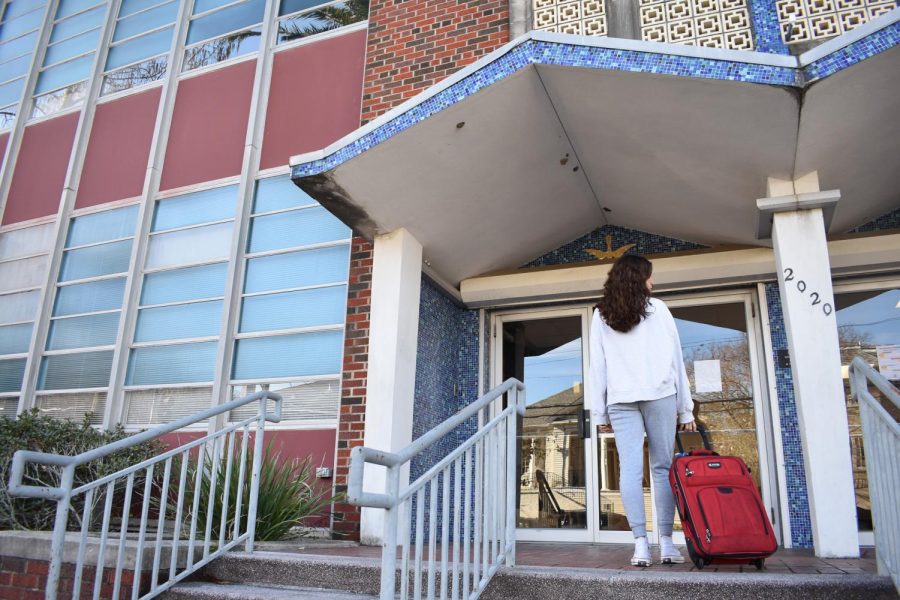New dorm to take over Mercy Hall
Photo illustration: A Loyola student stands with a suitcase outside Mercy Hall, the planned site of the new residence hall expected to be built by 2025.
February 4, 2023
If all goes according to plan, this year’s first-year students may also get to experience another first at Loyola — the first class to live in the soon-to-be-built residence hall.
According to the Rev. Justin Daffron, S.J., interim president, construction on the new residence hall is scheduled to begin in early 2024, with plans to open the doors to residents by fall of 2025.
Patricia Murett, Loyola’s director of public affairs, said the project shouldn’t impact housing costs, which are based on market rates, and are subject to change each year, regardless of a new dorm or not, she said.
Housing costs typically increase between 2.5% to 4.5% each year, but larger and smaller increases have occurred based on the housing market, Murret said.
The new residential hall will be constructed on the site of Mercy Hall, and all current administrative offices and classrooms will be moved to other locations on campus, according to Loyola’s Chief Operating Officer Carol Markowitz.
Daffron said the new building is expected to provide over $7.5 million in annual revenue for the university, and construction is planned to be partially funded through fundraising campaigns after approval from Loyola’s top donors.
“The donors who know us best see clearly the possibilities that improved residential capacity will open up for our students and Loyola,” Daffron said.
At the end of 2023, all offices and classes located in Mercy Hall are planned to be relocated to other spaces on the main campus, according to Murret. Murret said the administrative offices will be relocated to Thomas Hall, St. Mary’s Hall, Founders Hall, and Stallings Hall, so as to not affect student classroom space on campus.
One of the main drivers pushing the university to build the new hall is the belief that having more students on campus is not only financially beneficial for the university, but it will also have a positive impact on the students themselves.
“Students will be safer living on campus, will have fewer obstacles to attending classes, and they will have more opportunities to form friendships and build closer ties to the university,” Markowitz said.









